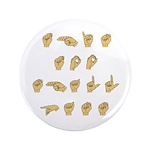It used to be that you would do a search on a relevant subject and get blog posts, forums posts, and maybe a couple of relevant companies offering the product or service. (And if you wanted more information on said company you could give them a call and actually talk to a real person about said service) You could even trust amazon and yelp reviews. Now searches have been completely taken over by Forbes top 10 lists, random affiliate link click through aggregators that copy and paste each others work, review factories that will kill your competitors and boost your product stars, ect… It seems like the internet has gotten soooo much harder to use, just because you have to wade through all the bullshit. It’s no wonder people switch to reddit and lemmy style sites, in a way it mirrors a little what kind of information you used to be able to garner from the internet in it’s early days. What do people do these days to find genuine information about products or services?


Go digging? That hasn’t really changed has it? If a report pops up in my feed speaking about some scientific study, I try and go to the journal or the arxiv to find the study itself so I can read the summaries. If I really can’t find anything first party, if I’ve got some personal knowledge on the topic I might just write the paper’s author and ask for a copy (they’re often very willing and excited to share) or use my library provided JSTOR access?
Google scholar still mostly works as well… but yeah I only use it every other week or so.
Like this isn’t new, science twitter has mostly moved to mastadon so most of the time there’s an arxiv link in the “Study released today…” toots etc.
There are some new youtubers trying to spread the word, but yeah like the same way you’ve always researched?